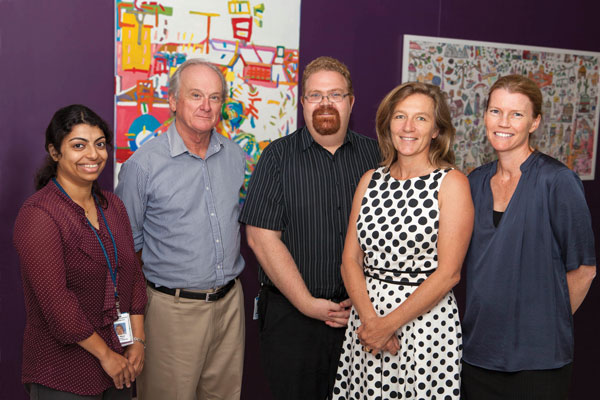Search
Research
Priority setting: Development of the South Australian Aboriginal Chronic Disease Consortium RoadMap for ActionAboriginal and Torres Strait Islander (Aboriginal) people in South Australia are overburdened by cardiovascular disease, diabetes and cancer. The South Australian Aboriginal Chronic Disease Consortium (Consortium) was established in June 2017 as a collaborative partnership to lead the implementation of three state-wide chronic disease plans using a strategic approach to identifying key priority areas for action.
Research
Efficacy of the MiniMed™ 670G hybrid closed loop system in managing postprandial glucose excursion with high protein high fat foods in children and adolescents under free-living conditionsHigh protein high fat meals are considered “difficult” foods because they can cause prolonged hyperglycemia after ingestion. The potential of hybrid closed loop therapy in managing postprandial glucose excursions with these difficult foods remains unknown. This pilot study aimed to explore the impact of manual mode in standard insulin pump therapy and auto mode with hybrid closed loop pump therapy in managing glucose excursions caused by HPHF foods and to obtain feedback from families about each mode.
Research
The effect of short-term use of the Guardian RT continuous glucose monitoring system on fear of hypoglycaemia in patients with type 1 diabetes mellitusThis study examines whether the short-term use of a continuous glucose monitor can reduce the fear of hypoglycaemia in individuals with type 1 diabetes...
Research
Type 2 Diabetes in Indigenous Australian childrenRates of type 2 diabetes are higher among Indigenous than non-Indigenous Australian children and adolescents.
Research
Type 1 and Type 2 Diabetes DNA bankA register which stores demographic and clinical data on all patients attending the diabetes clinic at Princess Margaret Hospital
Research
Sprint proof of concept studyThis study will evaluate the effect of two types of aerobic exercise

News & Events
Cholesterol and blood pressure drugs help teens with diabetesThe study involved screening young people to learn more about the development of long-term kidney, eye and cardiovascular complications in adolescents with T1D.

News & Events
High hopes for preventing lowsResearchers led by the team at the Children’s Diabetes Centre at The Kids have taken a key step to a fully automated closed-loop insulin delivery system.
News & Events
30% of children at risk of future heart diseaseAlmost 30% of 14-year-old Australian children fall within a group identified as being at future increased risk of heart disease, type 2 diabetes or stroke
Research
Reproducibility of plasma glucose responses to moderate-intensity exercise in individuals with type 1 diabetesTo examine the within-person variability in plasma glucose responses to moderate-intensity morning exercise in young individuals with type 1 diabetes after overnight fasting and under basal insulin conditions.
